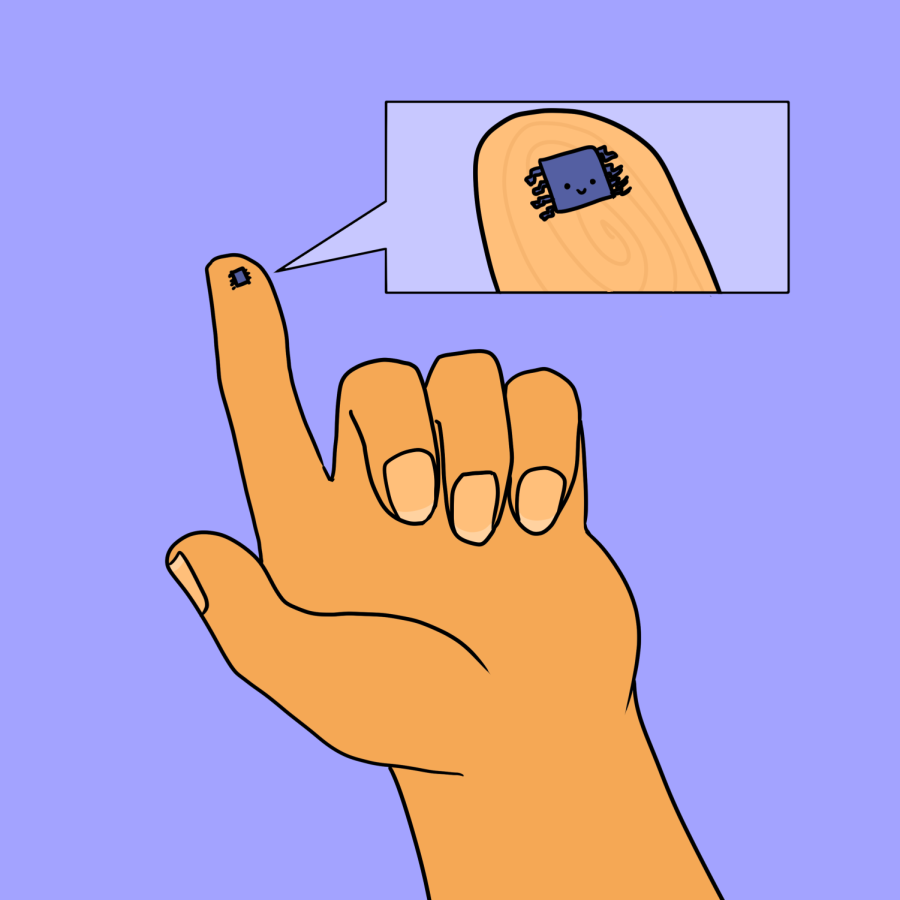Opinion | Microchips are the present, question the future
February 27, 2023
Dystopian novels might have predicted the future.
Flesh-embedded microchips have been used for years on pets and livestock for tracking and identification purposes. There’s a common misconception that these microchips are used for monitoring a location in realtime, but they work differently from the GPS system present in cars and phones.
Animal microchips usually use radio-frequency identification, or RFID, which relies on electromagnetic waves to determine its position. It has a much smaller range than GPS and is detected with a specialized RFID reader.
As this technology is being explored for mainstream human use, the dystopian pipe dream of embedded microchips is uncertain.
In recent years, thousands in Sweden have given microchips a try. These microchips are being inserted in people’s thumbs with the hopes of making their lives easier. RFID chips are inserted in thumbs, serving as apartment keys, train passes and other contactless read-only data. Imagine your wallet being inside your thumb.
Get The Daily Illini in your inbox!
However, there is always the risk of hacking when it comes to new technologies. Microchips make this much more personal, as hackers must be in close proximity to intercept data from embedded microchips.
Some have expressed concerns about embedded microchips in the workplace. A tech company in Sweden
implemented flesh-embedded microchips in their office, using them to unlock doors and access the printer. If microchips have the same functionality as keys, then intercepting their data could pose huge security risks for companies.
Of course, one of the most desirable aspects of microchipping is convenience. Never having to worry about forgetting your keys or wallet because they are permanently attached to you entices many.
With new technology, there is always something up and coming. We need the latest version of this and that to make society function faster and more efficiently.
Yet, there can be consequences to these actions. Do the benefits of convenience outweigh the impending self-destruction of our society?
Stepping back, there is the very prevalent idea of companies stealing data. We have all seen the lawsuits against big social media names like Facebook over privacy breaches involving their users.
Companies are constantly looking for ways to buy their customers, even if that means tapping into private data. If you are not paying for the product, then you are the product.
Inserting a chip with personal data inside you connects you to a database that is managed by a company. They have access to your information, and doesn’t that give them control over you?
Will the government one day require us to all be microchipped? The oppressive society created in those teen dystopian novels is not far from ours. With the exponential rate at which human technology advances, it would not be outlandish to assume microchips could be a common sight for people in the distant future.
We have the technology, but it comes down to what we choose to do with it.
Are cell phones not enough for us? When will we stop looking for ways to modernize? When do humans cross the line into becoming robots?
Maggie is a sophomore in Media.







